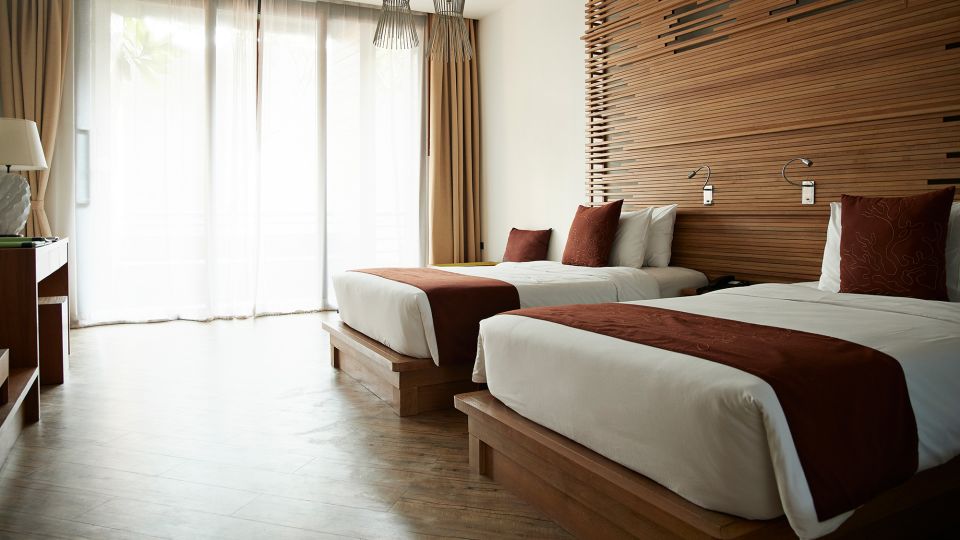Carbon monoxide, often called the “silent killer,” has no taste, odor or color, yet prolonged inhalation of the invisible gas has been tied to the recent deaths of several American tourists traveling abroad.
In March, 14-year-old Miller Gardner, son of former New York Yankees player Brett Gardner, died on a family vacation at a Costa Rica beach resort. A month prior, three American women were discovered dead in their Belize hotel room. In both cases, authorities have said carbon monoxide poisoning caused the deaths.
While many homes in the U.S. are equipped with alarms that detect the presence of the dangerous gas, travelers may need to take extra precautions to limit their exposure on the road.
Where does carbon monoxide come from?
Carbon monoxide is produced when natural gas is burned in appliances like boilers, pool heaters, gas stoves, fireplaces and dryers, according to the U.S. Environmental Protection Agency.
“Every carbon monoxide producing appliance is designed to take those toxic fuels out of the building,” said Charon McNabb, founder of the National Carbon Monoxide Awareness Foundation.
Without regular maintenance, McNabb said venting systems can corrode or shift, creating leak pathways for carbon monoxide to remain trapped indoors. The gas is then capable of traveling into nearby rooms through drywall, doors and air ducts.
A buildup of carbon monoxide in the air can diminish your ability to absorb oxygen, resulting in serious or fatal tissue damage to the brain, heart and muscles.
According to a 2019 study published in the journal Preventive Medicine Reports, 905 U.S. lodging guests were poisoned by carbon monoxide from 2005 to 2018, resulting in 22 deaths.
What can travelers do to limit their chances of exposure?
In the U.S., requirements for carbon monoxide detectors in homes and hotels differ by state, according to the National Conference of State Legislatures.
While vacation rental platforms like VRBO and Airbnb only require listed units to meet local regulations, owners can indicate whether a carbon monoxide alarm is present on the property within their listings.
McNabb advises travelers booking accommodations to call ahead of their stay to check for the presence of detectors in each guest room and ask about the location of their room within the building.
“Travelers may want to stay away from (rooms next to) pools and pool heaters because typically, the chemicals for the pools are kept in the mechanical room where the heater is stored, and those chemicals can corrode the metal much quicker, creating leak paths,” McNabb said, adding that rooms on higher floors can also provide a safer distance from gas-powered yard equipment.
“If you’re not totally confident in the answers you get, play it safe and bring your own (carbon monoxide) alarm,” McNabb said.
Portable alarms are battery or outlet powered, pocket-sized devices capable of monitoring CO levels and alerting the user of unsafe levels. TSA permits travelling with carbon monoxide alarms, but lithium batteries should be taken out of the device and placed in carry-on luggage.
Kos Galatsis, CEO of Forensics Detectors, which sells air quality monitoring devices, suggests travelers keep the alarm by their bedside, as many poisonings occur while stationary or sleeping.
Prices for portable CO alarms online range drastically, but the most important feature to look out for is a UL 2034 certification, which designates the device is in line with national product safety standards.
What about camping?
Campers should avoid using portable gas stoves, gas-powered lanterns, power generators and flameless chemical heaters inside of tents, according to the Consumer Product Safety Commission (CPSC).
This is especially important when camping in high altitudes, where the risk of carbon monoxide poisoning is increased.
Tents should also be pitched away from idling vehicles and campfire, according to the CPSC.
What to do if you suspect CO exposure
Initial symptoms of carbon monoxide exposure can easily be mistaken for the flu, jet lag or stomach bugs.
Signs of poisoning, according to Mayo Clinic, include:
– Dull headache
– Weakness
– Dizziness
– Nausea or vomiting
– Shortness of breath
– Confusion
– Blurred vision
– Loss of consciousness
High levels of exposure can cause symptoms such as mental confusion and loss of muscle control to develop more rapidly.
If you or fellow travelers experience any of these symptoms, seek fresh air and medical advice immediately.
For more CNN news and newsletters create an account at CNN.com
The post Carbon monoxide poisoning has been tied to several traveler deaths. Here’s how to stay safe on your trips appeared first on CNN.




